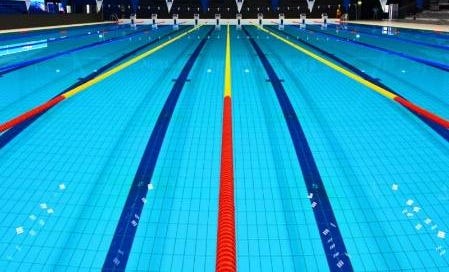NCAA Sued by 15 Biological Women for Being Canceled
The National Collegiate Athletics Association was sued for damages by 15 biological female athletes for violating the U.S. Constitution’s Equal Protection Clause and Title IX, for authorizing transgender athletes to compete against them and use female locker rooms in college sports
The class-action argues terms “male” and “female” and “women” and “men” are used in their strict biological sense and as these terms are used in Title IX’s sport-specific regulations adopted in chronological proximity to Title IX’s passage, without regard for “gender identity.” Likewise, “sex” is used herein, as it was meant in Title IX, to refer solely to binary, biological sex.
The action as the first of what is expected to be tidal wave of litigation against well-heeled universities seeks to cancel the original 2022 ruling that biological males identifying as so-called trans-female had the right to compete against biological female athletes. The suit demands the NCAA revoke all awards given to trans-athletes in women’s competitions and reinstate the proper female contenders’ awards.
The women led by Riley Gaines argue that they have experienced extreme “pain and suffering, mental and emotional distress, suffering and anxiety, expense costs and other damages due to defendants’ wrongful conduct.”
The class-action centers on the 2022 decision by the NCAA to allow University of Pennsylvania Men’s Swim Team trans athlete Lia Will Thomas to compete on the Woman’s Swim Team after taking two years of hormone therapy to compete on the Woman’s Team.
Thomas competed on the men’s team from 2017 to 2020, never being nationally ranked above 400th and never qualifying for any Men’s championships. But as a trans-woman, he routed female competitors in both the sprints and the endurance races.
Thomas won the NCAA Division I Women’s Swimming and Diving Championships 500-yard freestyle national title by beating out America’s top biological females, including Olympians and American national record holders. Thomas was named Woman’s All-American in all three events.
Riley Gaines commented as the lead litigant that she tied with Thomas for fifth place in the 200-yard freestyle at the NCAA Championships. Although the judges said she touched first, the NCAA virtue signaled their tranny agenda by telling Gaines: “Hey, I just want to let you know, we only have one fifth place trophy, so yours will be coming in the mail. We went ahead and gave the fifth place trophy to Lia, but you can pose on the podium with the sixth place trophy.”
The lawsuit accuses the NCAA of violating the Fourteenth Amendment by “destroying female safe spaces in women’s locker rooms by allowing “naked men possessing full male genitalia to disrobe in front of non-consenting college women,” and creates “situations in which unwilling female college athletes unwittingly and reluctantly had to expose their unclad bodies to males, subjecting women to a loss of their constitutional right to bodily privacy.”
The NCAA also faces many other student-athlete lawsuits over rules that include restrictions on compensation for the commercial use of some athletes' "name, image and likeness.” But the NCAA’s biggest fear is two antitrust lawsuits filed by seven states in California that seeks to “end the NCAA cartel” monopolizing huge broadcast revenues for college sports.




